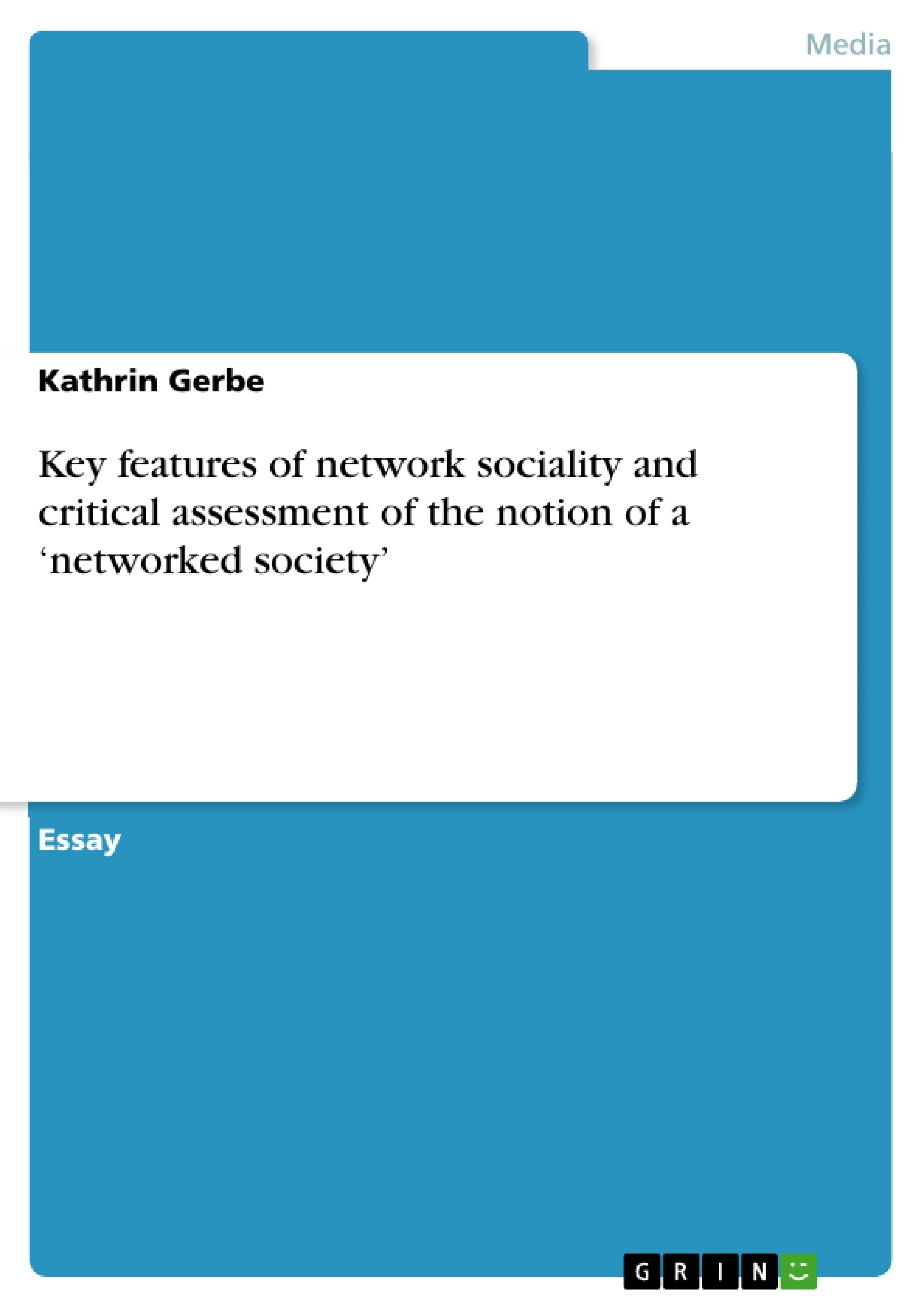On an ordinary day, we are woken up by our mobile phone; we get up and check our emails, answer them, call somebody, chat with a total stranger on ICQ, and have a video chat with some friends overseas. Our social relations seem more and more dominated by communication technologies and have assumed a wider dimension as our contacts spread in networks around the globe. Companies, nations and individuals come together, making “[t]he 21st century ... the age of networks” (v. Dijk 2006).
This essay discusses the key features of network sociality and the debates around the concept of network society, focussing on the influence of internet use on social interaction particularly in form of virtual communities.
Table of Contents
- NETWORK SOCIALITY
- Individualization and Ephemeral Relationships
- The Crisis of the Patriarchal Family
- The Erosion of Enduring Relationships
- The Blurring of Work and Play
- Focus on Information Instead of Narratives
Objectives and Key Themes
This essay investigates the key features of network sociality and critically assesses the notion of a networked society, focusing on the impact of internet use on social interactions, particularly within virtual communities.
- The evolution from mass media society to network society
- The characteristics of network sociality and its contrast with traditional communities
- The influence of new information and communication technologies (ICTs) on social relationships
- The fragmentation of traditional social structures and the rise of individualization
- The impact of network sociality on work and leisure activities
Chapter Summaries
- NETWORK SOCIALITY: This section introduces the concept of network sociality as coined by Andreas Wittel and outlines its five key features: individualization, ephemeral relationships, focus on information, merging of work and play, and the increasing importance of technology.
- Individualization and Ephemeral Relationships: This section explores the connections between individualization and short-lived relationships, highlighting the fragmentation of traditional groups and the decline of the patriarchal family.
- The Blurring of Work and Play: This section examines the merging of work and leisure in network society, discussing the rise of flexible work arrangements, the importance of skills over experience, and the blurring of boundaries between personal and professional networks.
Keywords
The key terms and concepts explored in this essay include network sociality, networked society, information and communication technologies (ICTs), individualization, ephemeral relationships, virtual communities, fragmentation of traditional social structures, and the blurring of work and play.
- Quote paper
- BA, MA Kathrin Gerbe (Author), 2007, Key features of network sociality and critical assessment of the notion of a ‘networked society’, Munich, GRIN Verlag, https://www.grin.com/document/75179




